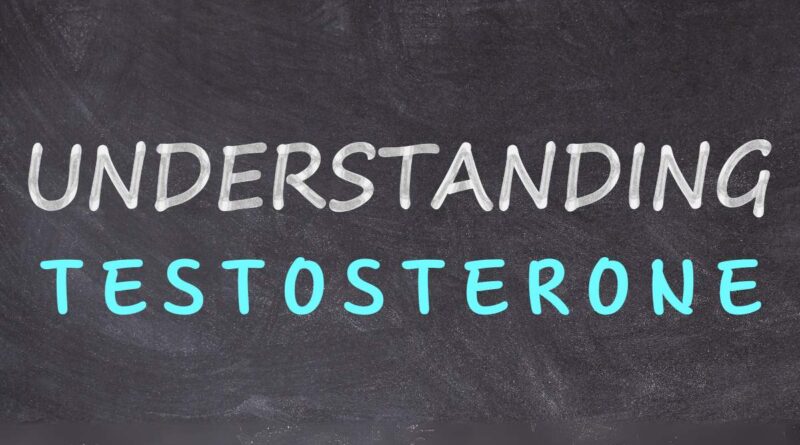Understanding Testosterone Levels and Their Impact
- Testosterone: More Than Numbers
Introduction
Testosterone, often hailed as the epitome of male hormones, is not just a numerical value on a laboratory report. It plays a pivotal role in various aspects of men’s health, influencing physical development, mental well-being, and overall vitality. Let’s embark on a journey beyond the numerical, understanding the profound implications of testosterone levels.
The Significance of Testosterone
Imagine testosterone as the conductor of a symphony, orchestrating numerous physiological processes in the male body. Synthesized primarily in the testicles, this hormone contributes not only to the development of male reproductive tissues but also defines crucial traits such as muscle mass, bone density, and body hair distribution. Its influence, however, extends far beyond physical attributes.
Balancing Act: Understanding the Impact
Maintaining optimal testosterone levels is a linchpin for preserving men’s overall health. It wields influence over libido, fertility, mood regulation, cognition, muscle strength, fat distribution, and cardiovascular health. The delicate balance it maintains is essential for a harmonious state of well-being.
Understanding Testosterone Levels
Testosterone levels undergo a dynamic evolution throughout a man’s life. Reaching their peak during adolescence and early adulthood, they gradually decline by approximately 1% annually post the age of 30. However, individual variations exist, influenced by lifestyle choices, stressors, and underlying medical conditions.
Implications of Low Testosterone
Entering the realm of low testosterone levels, known as hypogonadism, reveals a range of symptoms. From diminished libido and erectile dysfunction to persistent fatigue and an increase in body fat, addressing low testosterone is crucial not only for immediate relief but also to mitigate potential long-term health risks.
Seeking Balance
While low testosterone levels present their challenges, it’s equally important to recognize the adversities of excessively high levels. Striking a balance becomes pivotal to fostering optimal health, as excessively high levels may lead to heightened aggression, mood swings, and potential health hazards.
The Role of Lifestyle
Lifestyle factors play a significant role in hormonal balance. Regular exercise has been linked to higher testosterone levels, emphasizing the importance of an active lifestyle. Additionally, a balanced diet rich in essential nutrients is crucial for maintaining hormonal health.
Natural Approaches to Boost Testosterone
Apart from lifestyle, incorporating natural approaches can positively impact testosterone levels. Ensuring sufficient sleep, managing stress effectively, and adopting a diet with specific nutrients, such as zinc and vitamin D, can contribute to hormonal well-being.
The Age Factor
Understanding the changes in testosterone levels across the lifespan is crucial. Coping with age-related declines involves adopting strategies that support hormonal health, including lifestyle modifications and regular health check-ups.
Testosterone and Mental Well-being
The influence of testosterone extends to mental well-being. Cognitive functions are intricately connected to hormonal balance, and testosterone plays a role in mood regulation and emotional health. Recognizing this connection is vital for holistic health management.
Long-Term Health Risks
Low testosterone levels have been linked to chronic conditions such as cardiovascular disease and diabetes. Preventing long-term health complications involves not only addressing immediate symptoms but also adopting a proactive approach to hormonal health.
The Myths Surrounding Testosterone
Various myths surround testosterone, contributing to misconceptions. Dispelling these myths and gaining accurate information is essential for informed decision-making, especially when considering interventions like Testosterone Replacement Therapy (TRT).
Testosterone in Sports and Fitness
In the realm of sports and fitness, testosterone often becomes a focal point. The ethical considerations of using testosterone for performance enhancement should be weighed against the importance of maintaining hormonal health. Striking a balance between athletic goals and overall well-being is crucial.
Testosterone and Cardiovascular Health
Exploring the connection between testosterone and cardiovascular health unveils a complex interplay. Understanding how testosterone influences cardiovascular function and adopting strategies for cardiovascular well-being is essential for comprehensive health management.
Conclusion
Comprehending testosterone levels goes beyond statistical interpretation. It requires an intricate understanding of the profound influence this hormone wields across myriad aspects of men’s health. Fostering a proactive approach through regular health assessments, adopting a health-oriented lifestyle, and consulting healthcare professionals are indispensable steps in effectively managing testosterone levels. It’s not just a number; it’s an encompassing vitality that defines well-being.
FAQs
What are the symptoms of low testosterone?
- Symptoms include diminished libido, erectile dysfunction, persistent fatigue, despondency, reduction in muscle mass, and an increase in body fat.
How does age affect testosterone levels?
- Testosterone levels peak during adolescence and early adulthood, gradually declining by approximately 1% annually post the age of 30.
Can lifestyle changes improve testosterone levels?
- Yes, adopting a health-oriented lifestyle, including regular exercise and a balanced diet, can positively impact testosterone levels.
Are there natural ways to boost testosterone?
- Natural ways to boost testosterone include exercise, sufficient sleep, stress management, and a diet rich in nutrients.
When should one consult a healthcare professional?
- Consult a healthcare professional if experiencing symptoms of low testosterone or for regular health assessments to ensure optimal well-being.










